Spot the Early Signs of Dementia Before It’s Too Late

Last Updated on February 23, 2026 by Team MSW
Could subtle changes in memory or decision-making signal more than typical aging? Early detection of dementia can empower individuals and families to take proactive steps for a better quality of life. This guide explores five key signs to watch for, practical ways to distinguish them from age-related changes, and actionable strategies for managing cognitive health.
You’ll discover:
- Subtle shifts in memory, problem-solving, and behavior that may indicate early dementia
- How to tell the difference between normal aging and potential red flags
- Modern diagnostic tools like brain imaging and cognitive assessments
- Encouraging tips for caregivers to create supportive environments
- Resources for accessing treatments, clinical trials, and community support
Whether you’re noticing changes in yourself or a loved one, understanding these signs can lead to timely medical guidance and meaningful planning. Let’s explore how awareness today can shape brighter tomorrows.
What You Need to Know About Dementia!
Recognizing the early signs of dementia can be life-changing. Early detection allows for better symptom management, access to supportive resources, and improved quality of life for both individuals experiencing cognitive changes and their loved ones. This comprehensive guide explores the key warning signs of dementia, how they differ from typical aging, and the resources available to help navigate this journey.
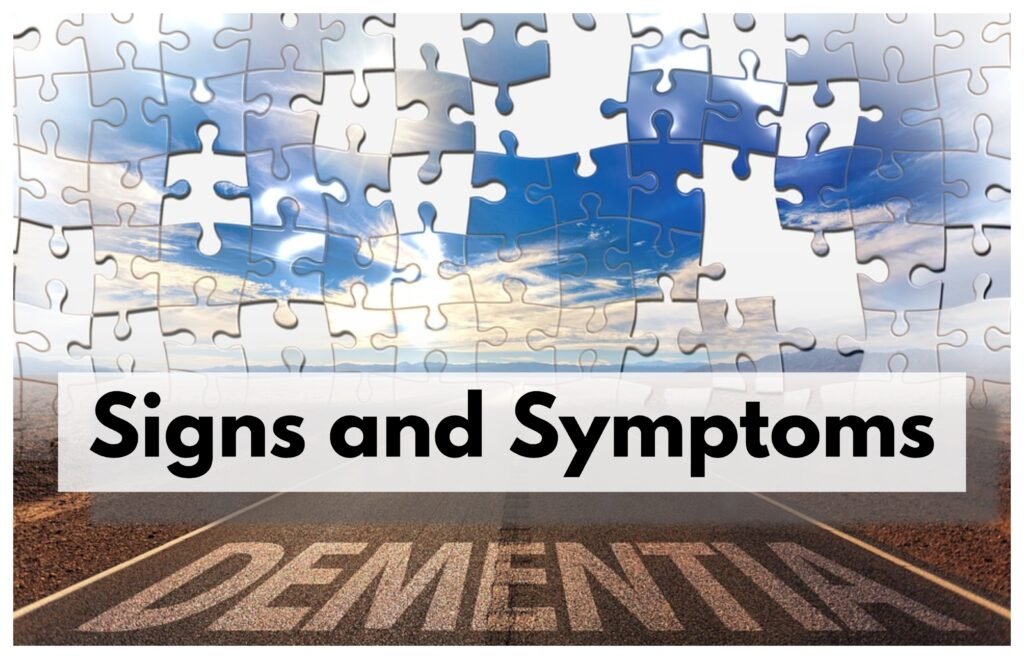
Prefer to listen rather than read?
Early Warning Signs of Dementia
Recognizing the early signs of dementia is essential for timely intervention. Dementia affects memory, problem-solving abilities, and reasoning, which can significantly impact everyday activities. Identifying these signs early can help individuals receive proper evaluation and support.
Some common warning signs include:
- Memory changes that disrupt daily life, such as consistently forgetting recently learned information or important dates.
- Difficulty completing familiar tasks, such as following a favorite recipe or remembering the rules of a beloved card game.
- Confusion with time or place, including losing track of seasons, dates, or becoming disoriented in familiar locations.
- Challenges with verbal or written communication, such as struggling to join conversations or finding the right words to express thoughts.
- Changes in mood, personality, or social withdrawal that seem out of character for the individual.
- Decreased judgment and decision-making abilities, such as showing poor financial choices or neglecting personal hygiene.
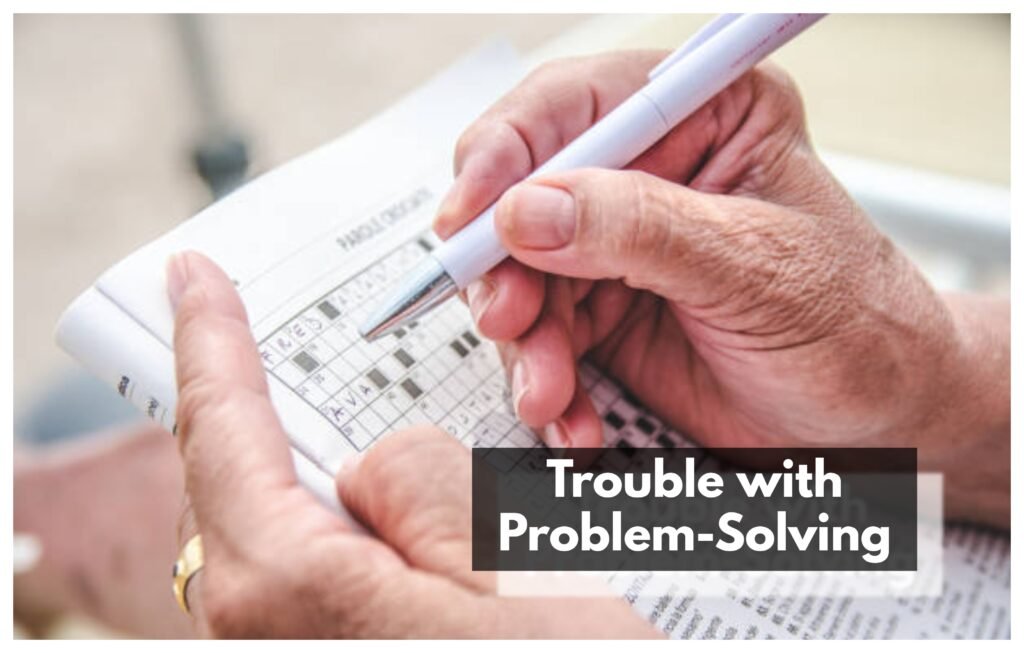
Dementia vs. Normal Aging
Have you ever wondered if those occasional memory lapses might be something more serious? It’s important to differentiate between dementia and typical age-related cognitive changes. While occasional forgetfulness is common as we age, dementia involves persistent and worsening symptoms that interfere with daily functioning.
This comparative table highlights key distinctions:
| Category | Normal Aging | Dementia |
| Memory Loss | Occasional forgetfulness, such as misplacing items but remembering them later. | Frequent memory loss that disrupts daily life, such as forgetting recent events and not recalling them later. |
| Problem-Solving | May take longer to solve problems, but can still follow logical steps. | Difficulty following plans, solving problems, or managing finances. |
| Familiar Tasks | May need occasional help with new technology or complex tasks. | Struggles with familiar tasks, such as cooking or using a phone. |
| Language Skills | Occasionally struggles to find the right word but remembers later. | Difficulty following conversations, repeating words, or using incorrect words frequently. |
| Time and Place | May momentarily forget the day but remember later. | Losing track of dates, seasons, or becoming lost in familiar places. |
| Judgment | Occasionally makes poor decisions, such as a bad financial choice. | Noticeable decline in judgment, such as giving away large sums of money or neglecting hygiene. |
| Mood and Personality | May experience mild irritability or sadness due to life changes. | Noticeable mood swings, personality changes, withdrawal, or paranoia. |
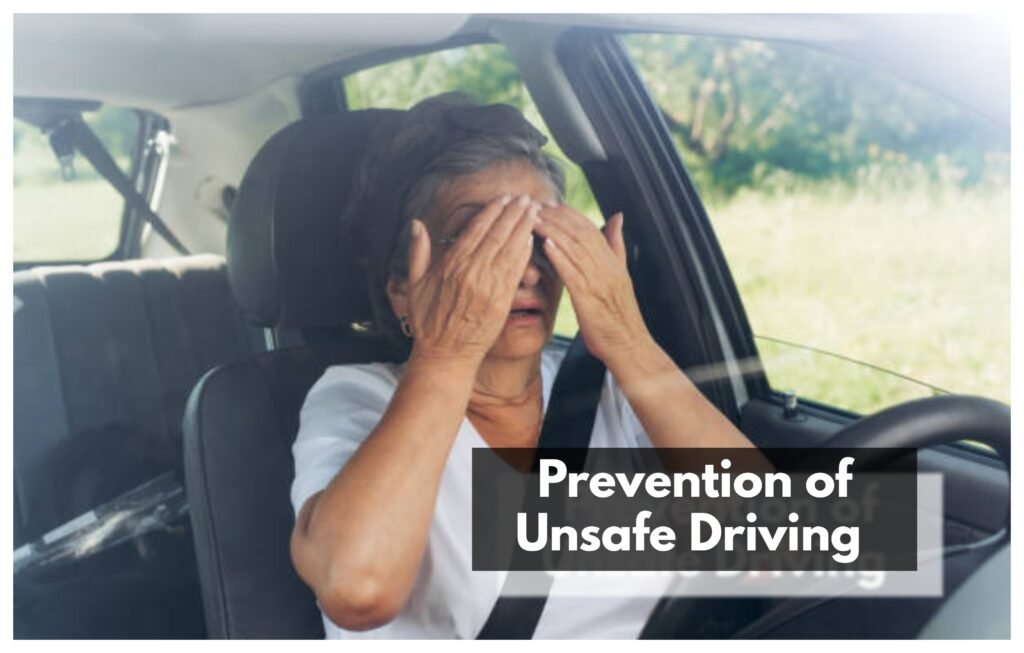
Benefits of an Early Diagnosis of Dementia
Research published in the Journal of Alzheimer’s Disease shows that early detection of dementia can significantly impact disease management, quality of life, and future planning. Recognizing the symptoms early allows for timely interventions and better long-term outcomes.
- Access to Early Treatment and Intervention
- While dementia has no cure, early detection allows for medications and therapies that can help slow cognitive decline and manage symptoms more effectively. According to a study, individuals who receive early intervention maintain better cognitive function over time.
- Improved Quality of Life
- Early diagnosis enables individuals to make lifestyle changes that may help maintain cognitive function, such as engaging in regular physical activity, pursuing mentally stimulating hobbies, maintaining social connections, and following a brain-healthy diet rich in omega-3 fatty acids.
- Better Planning for the Future
- Individuals diagnosed early can participate in legal, financial, and healthcare decisions while they still have the cognitive ability to express their preferences. This includes advance directives, power of attorney arrangements, and long-term care planning.
- Support for Caregivers and Families
- Families can better prepare for caregiving responsibilities, seek support groups, and plan for necessary home adjustments. The Alzheimer’s Association reports that caregivers who receive education and support early experience less burnout and provide better care.
- Opportunities for Clinical Trials
- Early-stage patients may qualify for research studies that provide access to experimental treatments and contribute to scientific advancements.
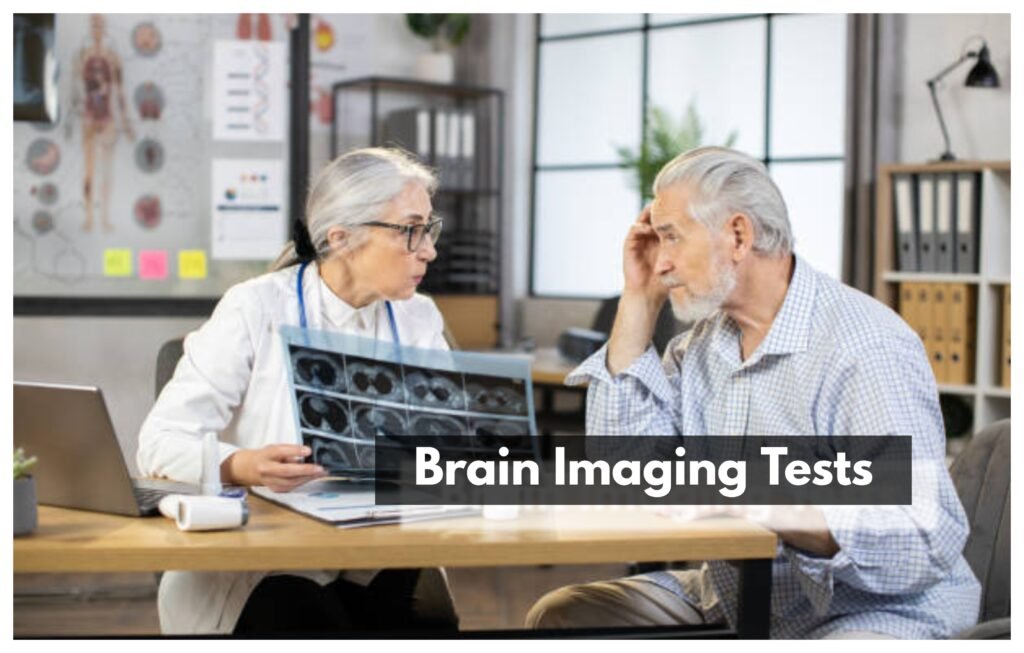
Diagnostic Tools and Assessments
Accurate diagnosis is essential for effective dementia management. Healthcare professionals use various diagnostic tools and assessments to evaluate cognitive function and determine the presence of dementia-related disorders.
Some commonly used diagnostic tools include:
- Cognitive Assessments – The Mini-Mental State Examination (MMSE) and Montreal Cognitive Assessment (MoCA) evaluate memory, attention, language, and problem-solving abilities. These brief screening tools help identify potential cognitive impairment that may warrant further evaluation.
- Medical History and Physical Examination – Doctors will review medical history, medications, and conduct a physical exam to identify any conditions that might cause or contribute to cognitive symptoms.
- Laboratory Tests – Blood tests can rule out vitamin deficiencies, thyroid problems, or other medical conditions that might mimic dementia symptoms.
- Brain Imaging – MRI or CT scans provide detailed pictures of brain structure that can help identify strokes, tumors, or other abnormalities that might explain cognitive changes.
- Neuropsychological Testing – More extensive testing can provide detailed information about specific cognitive strengths and weaknesses.
Caregiver Insights and Practical Advice
Caring for someone with dementia can be both rewarding and challenging. Caregivers play a crucial role in maintaining the well-being of individuals with dementia. Implementing practical strategies can help improve their quality of life. Here are some helpful strategies based on recommendations from the National Institute on Aging:
- Establish consistent daily routines to provide structure and reduce confusion. Try to schedule appointments and activities during the person’s best time of day.
- Use visual cues and labels around the home, such as pictures on doors identifying rooms or labels on drawers describing contents.
- Encourage social interactions and mental stimulation through appropriate activities, music, art, or reminiscence therapy. Research shows that social engagement can help maintain cognitive function longer.
- Simplify communication by speaking clearly, making eye contact, asking one question at a time, and giving the person time to respond.
- Create a safe environment by removing tripping hazards, installing handrails, and using locks on cabinets containing dangerous items.
- Practice self-care by seeking support groups and respite care when needed. Remember that taking care of yourself allows you to provide better care for your loved one.
Is It Dementia? An Engaging Quiz for Recognizing Signs
Concerned about dementia? Not sure if it should be on your radar? We’re here to help! Our interactive quiz can help you better understand the warning signs of dementia and when to seek professional advice. It’s important to remember that only healthcare professionals can diagnose dementia, but this quiz may help you identify potential concerns.
Conclusion
Dementia is a complex condition that requires awareness, early detection, and medical intervention. Identifying the early warning signs and distinguishing them from normal aging can help individuals seek timely medical advice. Diagnostic tools and caregiver support are essential in managing the disease effectively.
Early detection of dementia symptoms can lead to better management and improved quality of life. Consulting a healthcare professional is crucial for an accurate diagnosis and treatment plan. Numerous resources are available to support both patients and caregivers in navigating this condition.
Have you noticed any of these signs in yourself or a loved one? Remember that early intervention is key to managing dementia effectively. You may also like to read our article about ‘When is it Time to Consider Aged Care‘.
FAQ Section
- What is the difference between Alzheimer’s disease and dementia?
- Dementia is an umbrella term for a group of symptoms affecting memory, thinking, and social abilities severely enough to interfere with daily functioning. Alzheimer’s disease is the most common cause of dementia, accounting for 60-80% of cases according to the Alzheimer’s Association. While all Alzheimer’s patients have dementia, not all dementia is caused by Alzheimer’s disease.
- At what age does dementia typically begin?
- While age is the strongest known risk factor for dementia, it’s not an inevitable part of aging. Most cases occur in people over 65, but early-onset dementia can affect people in their 40s or 50s. According to the World Health Organization’s 2023 data, the risk of developing dementia doubles every five years after age 65.
- Can dementia be prevented?
- While there’s no guaranteed way to prevent dementia, research published in The Lancet (2023) suggests that addressing modifiable risk factors might prevent or delay up to 40% of dementia cases. These factors include physical inactivity, smoking, excessive alcohol consumption, untreated high blood pressure, diabetes, high cholesterol, obesity, depression, social isolation, and hearing loss. Maintaining a heart-healthy lifestyle and staying mentally and socially active may help reduce risk.
- How quickly does dementia progress?
- The rate of progression varies widely depending on the type of dementia, the individual’s overall health, age of onset, and other factors. Some people experience a gradual decline over many years, while others may deteriorate more rapidly. Each person’s journey with dementia is unique.
- Are there any new treatments for dementia?
- Research continues to advance our understanding of dementia. Recent FDA-approved medications aim to slow the progression of Alzheimer’s disease in its early stages by targeting amyloid plaques in the brain. Additionally, non-pharmaceutical approaches like cognitive stimulation therapy, physical exercise programs, and specialized nutrition plans show promise in managing symptoms. Always consult with healthcare providers about the latest treatment options.
- What resources are available for caregivers?
- Numerous resources exist for caregivers, including:
- The Alzheimer’s Association’s 24/7 Helpline (1-800-272-3900)
- National Institute on Aging’s Alzheimer’s and related Dementias Education and Referral Center
- Local support groups for caregivers
- Respite care services to provide temporary relief
- Online forums and communities where caregivers can share experiences
- Home health agencies that provide trained dementia care specialists
- Numerous resources exist for caregivers, including:
- How do I approach a loved one about getting evaluated for dementia?
- Approach the conversation with compassion and sensitivity, choosing a time when you’re both relaxed. Express specific concerns about changes you’ve noticed rather than using the term “dementia.” For example, “I’ve noticed you’ve had trouble remembering appointments lately, and I’m concerned.” Suggest a check-up with their doctor for these specific issues, perhaps offering to accompany them. Remember that denial and resistance are common initial responses, so patience and persistence may be necessary.
REFERENCES
- Alzheimer’s Association. (2023). 2023 Alzheimer’s Disease Facts and Figures. Alzheimer’s & Dementia, 19(4), 1598-1695.
- Livingston, G., et al. (2024). Dementia prevention, intervention, and care: 2024 report of the Lancet Commission. The Lancet, 401(10325), 417-446.
- National Institute on Aging. (2023). Alzheimer’s Disease Fact Sheet. Retrieved from https://www.nia.nih.gov/health/alzheimers-disease-fact-sheet
- Rasmussen, J., & Langerman, H. (2022). Alzheimer’s Disease – Why We Need Early Diagnosis. Journal of Alzheimer’s Disease Reports, 6(1), 275-287.
- World Health Organization. (2023). Dementia Fact Sheet. Retrieved from https://www.who.int/news-room/fact-sheets/detail/dementia
Disclaimer
The content provided on MySeniors.World is for informational purposes only and is not intended as either financial or medical advice. Always consult a qualified professional before making any investment or health-related decisions.
Posts may contain affiliate links, meaning we earn a commission – at no additional cost to you, if you click through and make a purchase, . Your support helps us continue providing valuable content.





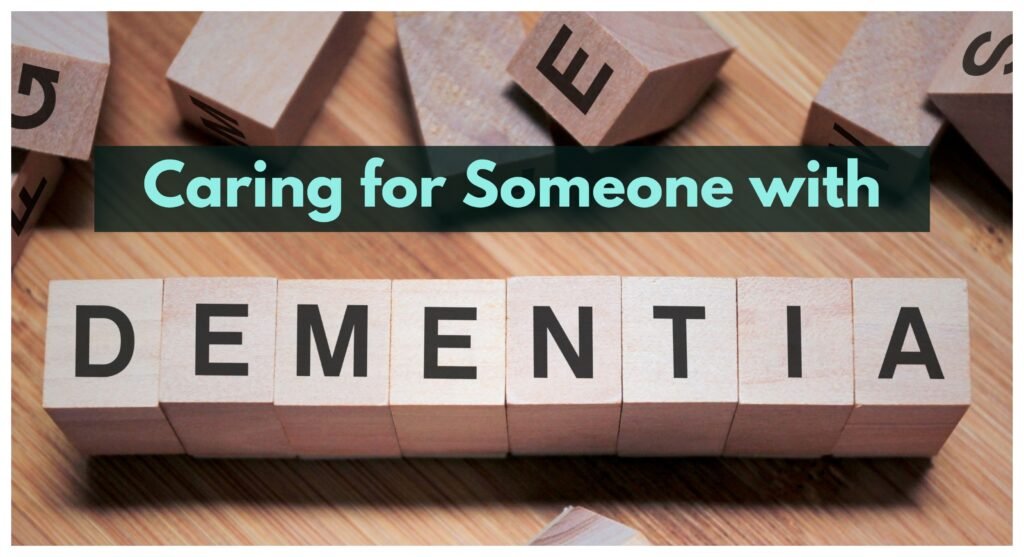
Responses